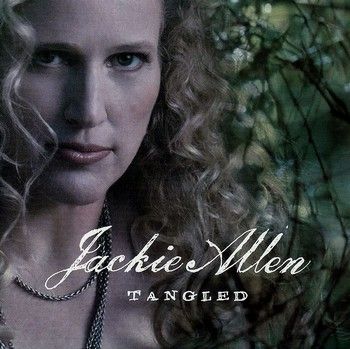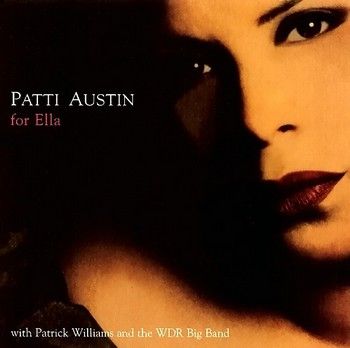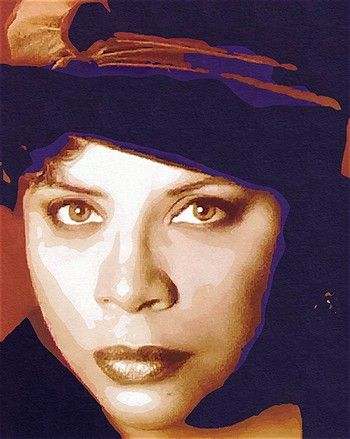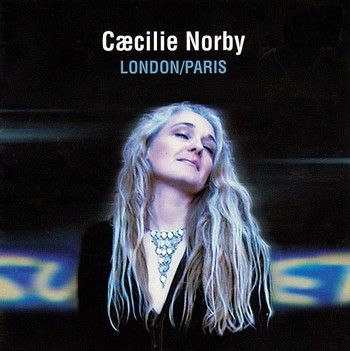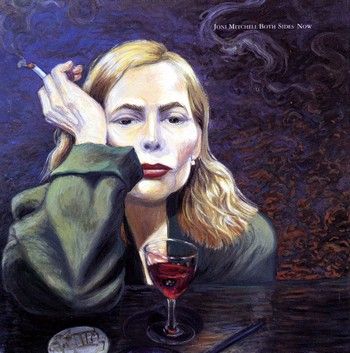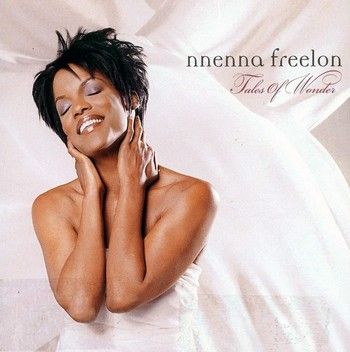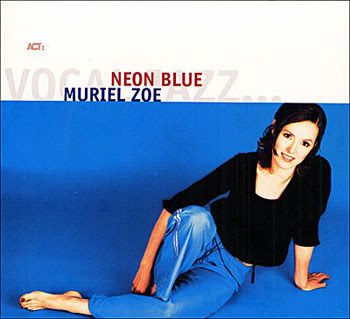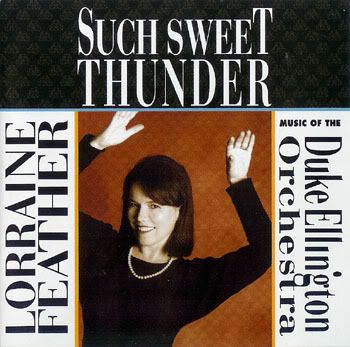
Randy Bachman - Jazz Thing - 2004 - Maximum Jazz
You won't find any hard or boogie rock here. However, you WILL find 11 good vocal & jazz guitar tracks. Randy Bachman's great career is founded on his incessant drive in creating music as a guitarist, songwriter, performer and producer. He has released many solo albums, and globally has collected over 120 gold and platinum albums and singles for creating music which has provided a soundtrack of the last 30 years of popular music. Many people still don’t realize Randy’s close association with jazz. It is often overlooked that Randy Bachman even as a teenager, had a great love of jazz, and is a superb and often underrated jazz guitarist. His wonderful and unique finger-picking guitar style is evident throughout this album. Randy composed "Let's Call It a Night" and "The First Time You Said Hello", and had a hand in writing six other tracks. Other tracks covered are Lew Brown & Sammy Fain's "That Old Feeling", Johnny Cash's "I Walk the Line", (played slowly, the way Johnny Cash originally intended), and Ira Gershwin's "Summertime" played with the late, great jazz guitarist, Lenny Breau. When Randy was 15, and learning guitar, he met Lenny. He had heard him on the radio and was deeply impressed by his technique. Living near each other in Winnipeg, they became good friends, and hung out together. Randy received some informal lessons from Lenny, and learned as much as he could from the great guitarist . As Randy Bachman's Rock 'N' Roll career bloomed, he never forgot the jazz influences that he got from Lenny. That influence can be heard in some of Randy’s songs such as “Lookin’ Out for #1", “Blue Collar” and "She’s Come Undun". Lenny Breau went on to become a renowned jazz guitarist in his own right, but in 1984 he passed away at an early age in LA. Lenny posthumously joins Randy on a couple of tracks. There have naturally been a few criticisms of this album. The album has been described as "jazz-schmaltz", and Randy has been slagged off about his "weak vocals" and "silly" and "trite lyrics". Comparisons have been made to jazz influenced BTO tracks like "Blue Collar", and "Lookin' Out for #1". It has also been said that "I Walk The Line" would have been "a better instrumental without vocals". If one is going to criticise an album for silly lyrics and weak vocals, then many, many great albums could easily be written off. A reviewer of this album on Amazon.com said that, "Sorry Randy but if ya can't sing anymore then play the guitar and hire someone else or make instrumentals. And please do us all a favor and put an end to the trite lyrics. My writing skills at age fifteen were better than this. "Breau's Place" & "I Walk The Line" saves the CD from being a complete throw away". The point here is understandably being missed, and obviously that review comes from a BTO fan. Tracks like BTOs "Looking Out For Number One" may have had a jazz touch, but BTO was primarily a hard rock band. "Jazz Thing" is not a Guess Who or Bachman Turner Overdrive album, and although it is difficult not to make comparisons to BTO, the album should be accepted for what it is, which is a collection of both original and traditional jazz songs of yesteryear, which showcases Randy Bachman's talent and enjoyment for jazz guitar music. Randy originally formed his "Jazz Thing" project to promote and demystify jazz music, which for too long has been regarded as an "elite" genre. With his project, he has played in many popular venues throughout Canada and elsewhere to enthusiastic audiences. Some of his sidemen have included Curtis Stigers on sax, Francois Houle on clarinet, Dave Young on bass, Joel Kroeker on guitar and vocals, Chris Gestrin on piano and keyboards, and Randy's longtime sidemen, Mick Dalla-Vee on bass and Roger Belanger on drums. Some of these artists also play on this album which brings one of pop music’s most enduring artists full circle. Randy Bachman is returning to walk down the path he never took in his earlier days. To keep the memory of Lenny Breau's music alive, Randy formed Guitarchives Music in the 1990s. The label restores and releases private tapes of Lenny Breau’s live performances. Such is Randy Bachman's great love and admiration for great jazz artists and jazz music. Check out Randy Bachman and The New Guitar Summit's terrific "Jazzthing II" album @ RBACH/NGS/JT2 and try and listen to Lenny Breau's great "Live at Bourbon St." album
TRACKS / COMPOSERS
1. Let's Call It a Night - Randy Bachman
2. In Blue - Randy Bachman, Charles Foskett, Lauren Field
3. That Old Feeling - Lew Brown, Sammy Fain
4. Rose Coloured Glasses - Randy Bachman, Greg Becker
5. Summertime - Music by Ira Gershwin: Lyrics by DuBose Heyward *6. Sentimental Fool - Randy Bachman, Denise McCann
7. I Walk the Line - Johnny Cash
8. Dead Cool - Randy Bachman, Bart Foley
9. The First Time You Said Hello - Randy Bachman
10. Breau's Place (Quiet and Blue) [Live] - Randy Bachman, Dave Young, Lenny Breau
11. Our Leaves Are Green Again - Randy Bachman, Stephan Moccio
N.B: * Thanks to Lou for track info
MUSICIANS
Randy Bachman - Guitar, Vocals
Joel Kroeker - Guitar, Vocals
Lenny Breau - Guitar
André Lachance, Dave Young Orchestra - Bass
Chris Gestrin - Fender Rhodes, Keyboards, Piano, Wurlitzer
Bill Sample - Keyboards, Piano
Stephan Moccio - Piano
Buff Allen, Craig Scott - Drums
Curtis Stigers - Saxophone
François Houle - Clarinet
Denise McCann - Background Vocals
Shawn Penner - Contributor
BIO
Randolph Charles Bachman, (born September 27, 1943) was lead guitarist, songwriter and a founding member for both the 1960s-70s rock band The Guess Who, and the 1970s rock band Bachman-Turner Overdrive. Bachman was also a member of the band Brave Belt with Chad Allan and a band called Ironhorse, and has recorded numerous solo albums. Born in Winnipeg, Canada, Randy Bachman has become a legendary figure in the rock and roll world through his talents as a guitarist, songwriter, performer and producer. He has earned over 120 Gold and Platinum album/singles awards around the world for performing and producing. His songwriting has garnered him the coveted #1 spot on radio play lists in over 20 countries and he has amassed over 40 million records sold. His songs have been recorded by numerous other artists and placed in dozens of television, movie and commercial soundtracks. His music has provided a veritable soundtrack of the last thirty years of popular music. THE GUESS WHO - In 1960, Bachman and Allan co-founded Al and The Silverstones in Winnipeg. By 1962, the band changed names to Chad Allan and the Expressions and later on to The Guess Who. In 1965, the Guess Who had a #1 hit in Canada with their cover of "Shakin' All Over", which also charted in the U.S. at #22. In 1966, Chad Allan left the band and Burton Cummings became the primary vocalist. Starting in 1968, the group released three successful albums: Wheatfield Soul (1968); Canned Wheat (1969); and American Woman (1970) which brought them mainstream attention. Bachman wrote or co-wrote (primarily with Cummings) most of the groups songs during this period. In early 1970, the "American Woman" single hit #1 on the U.S. charts, a first for a band from Canada. Due to health concerns and desiring a change in lifestyle, which would include spending more time with his young family, Randy left the Guess Who at the height of their success. While this move stunned the music world, Randy knew that he could never leave music behind. He formed Brave Belt - a county rock outfit in 1970 and experimented with a new musical style and line up that eventually metamorphosed into Bachman-Turner Overdrive. BACHMAN TURNER OVERDRIVE - Bachman, formed Brave Belt - a county rock outfit in 1970 and experimented with a new musical style and line up that eventually metamorphosed into Bachman-Turner Overdrive, releasing their first self-titled album, Bachman-Turner Overdrive in May, 1973. In December, 1973, BTO released their second LP, Bachman-Turner Overdrive II, which featured the hits "Takin' Care of Business", which charted at #12 in the U.S., and "Let It Ride", which rose to #23. In 1974, they released the LP Not Fragile which hit #1 on the album charts. It also contained the #1 single "You Ain't Seen Nothin' Yet" and the hit "Roll On Down The Highway" which charted at number 14. BTO stayed on the charts with their next two albums, Four Wheel Drive and Head On, through the mid-1970s. The band began to fall apart in late 1976 with the recording of the Freeways album. Randy Bachman wrote or co-wrote all but one song and sang on every song but two. The album only scraped the charts at #70 in America and had no hit singles. He then left the band in mid-March 1977. POST B.T.O. - After his depature from BTO, Randy recorded a solo album called Survivor. It did not chart in the U.S. . He formed a band with bassist/ singer Tom Sparks called Ironhorse and released its debut album in 1979. It contained the single "Sweet Lui-Louise" and the single charted at #36 in the U.S. and #26 in Canada. Sparks left after the tour for this album and was replaced by Bob Ludwig. Ironhorse, with Ludwig, released another album, Everything Is Grey, in 1980. In 1981, Fred Turner joined Ironhorse and the band changed its name to Union. BTO had broken up in early 1980. Union released one album before disbanding. REUNIONS - Randy joined The Guess Who reunion in 1983 with Burton Cummings and other members of the American Woman era. They did a tour of Canada and released a live video performance of it. Once The Guess Who reunion ended, Randy rejoined a new BTO reunion, consisting of Randy, Fred Turner, Tim Bachman, and Garry Peterson of The Guess Who on drums. Robin Bachman and classic line up guitarist Blair Thornton could not join the reunion. Randy stayed with with this version of the band until 1987 and they put out an album in 1984. The classic Not Fragile line-up reformed in 1988 and they toured together until 1991 when Randy left the group. It would be the last time he played with BTO. The Guess Who reunited, including Randy, on August 8, 1999. Randy played on several tours with The Guess Who until July 31, 2003. Both he and Burton Cummings left the band and formed Bachman Cummings. They are currently on tour together in Canada. In 2000, he made a guest appearance on The Simpsons as himself with his former Bachman-Turner Overdrive bandmates, C.F. Turner and Robin Bachman. Simpsons creator Matt Groening (whose father is originally from Winnipeg), is a well known BTO fan. Homer Simpson yells at Bachman to "get to the working overtime part" while playing "Takin' Care of Business". In 2001 Bachman received an honorary Doctorate of Music from Brandon University in Brandon, Manitoba along with the other members of the Guess Who. In 2005 Bachman was awarded the Order of Manitoba, the highest award in the Province of Manitoba. Bachman, along with The Guess Who, was also the recipient of The Governor General’s Performing Arts Award, Canada's foremost distinction for excellence in the performing arts, in 2002. In 2008, he was made an Officer of the Order of Canada. Bachman travels the world with his wife Denise to write with many European songwriters, including Douglas Carr (producer of the Swedish band Ace of Base) and Michael Saxell in Sweden. Bachman has also performed with Swedish rockers The Soundtrack of Our Lives and appears on a vinyl picturedisc with them from a live performance at Vancouver, British Columbia, Canada's Commodore Ballroom in 2004. Since the summer of 2005, Bachman created and is currently hosting the series Vinyl Tap on CBC Radio One, where he tells stories about music and musicians while playing appropriate recordings. Randy helped Kalan Porter on his CD 219 Days. He suggested that Kalan do a drone on his violin on one of his songs, In Spite Of It All. He was also featured in his song, And We Drive, playing a guitar solo near the end of the song. Bachman tours with his own band, the Randy Bachman Band and the Bachman-Cummings Band. He has also created a popular theatre show he calls "Every Song Tells A Story" featuring Bachman live and unplugged with his band, telling the stories behind the writing of his famous hits from the 1960s and 70s. Randy Bachman and Burton Cummings toured throughout Canada as Bachman & Cummings in the summer of 2006 with Toronto, Ontario, Canada's, The Carpet Frogs. Randy Bachman has also released an album of original melodic jazz songs called "Jazz Thing" which is available on his official website.Bachman's coast-to-coast CBC Radio One show Vinyl Tap, featuring Bachman playing audio recordings and reminiscing about his personal encounters with famous artists and musicians from his 50-year career in rock, runs from 7-9 p.m. every Saturday night and can be accessed via the CBC Radio One web site and Sirius channel 137. There is a replay of the Saturday show on the following Friday night at 11 pm. Streaming audio of the show is available through the internet in every Canadian time zone at http://www.cbc.ca/listen/ Although Randy and Fred turner are working on new songs for Randy's album, Randy has been noted for trying to put a Bachman-Turner Overdrive reunion together. However, the only former members of BTO that have been in any known discussions are Fred Turner and Randy Bachman. RANDY - Randy's career has been built upon his unstoppable drive to work at creating music. He has released numerous solo albums throughout his career, and has simultaneously worked at producing for other artists. His production/writing work with Canadian rock band Trooper generated gold and platinum record in the 1970's. His love of guitar music and a desire to support some unsung and legendary guitar greats including his early mentor Lenny Breau, led him to found the jazz guitar record label Guitarchives which rescues and releases otherwise lost archival guitar music. As well he founded Ranbach Music, a label which releases archival Guess Who recordings, and other material which never made it to CD. [This page was last modified 15:39, 5 July 2009 - from & © http://www.guitarmasterclass.net/wiki/index.php/Randy_Bachman ]


